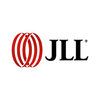Hotel revenues in APAC are set to continue rising in 2024 despite economic pressures and volatility
ESG is a key agenda for hotel operators with new sustainability standards and majority of operators intending to obtain sustainability ratings
SINGAPORE – Hotel occupancy levels in the Asia Pacific (APAC) continue to rise steadily following the reopening of all key markets, the ramping up of air capacity, and a strong pick up in conferences and events around the region. The upward trend comes amidst headwinds to the hotel sector attributable to a tight labour market, rising energy costs, alongside pressure on corporate travel spend, geopolitical tensions and high cost of travel.
According to JLL’s (NYSE: JLL) Hotel Operators’ Sentiment Survey 2023, conducted with over 360 hotel operators across APAC to gather the sentiment of hotel owners and operators, there remains an industry disconnect and uncertainty amidst strong tourism demand and macro-economic headwinds.
In markets such as Bali, Phuket, and Singapore, Average Daily Rates (ADR) have surpassed pre-pandemic levels by over 20%, primarily driven by leisure tourists. The survey indicates that 77% of hotels in APAC anticipate a further rise in occupancy levels in 2024, particularly in the upper upscale and luxury segments. Furthermore, 73% of hotels in the Asia Pacific region expect ADR to rise. Among the subregions, Southeast Asia exhibits the most optimistic outlook, attributed to strong tourist arrival growth momentum in most countries.
Most respondents (66%) are optimistic about total revenue exceeding pre-pandemic levels in 2024, while sentiment in the economy segment remains lower (33%). Economy hotels are less optimistic due to reliance on tourist groups and the increased cost of travel. However, the recent expansion of group tours destinations from China from August 2023, including Australia, South Korea, and Japan, is expected to bring positive prospects for economy hotels in the next six to twelve months.
Leisure travel continued to drive demand in Asia Pacific in the first half of 2023. Concurrently, corporate spending has been under pressure, but we’re witnessing a steady increase in bookings from both leisure and business, supported by a growing number of major sporting and business events. Nihat Ercan, Chief Executive Officer, Asia Pacific, JLL Hotels & Hospitality Group
The labour shortage in the region has led to increasing associated costs since 2022, and by 2024, labour costs are expected to have increased by 10% to 20% compared to 2019. In many cases this has been somewhat mitigated by redefining job roles, reducing service standards, and reducing maximum occupancy. While adoption of technological advancements such as mobile check in, cleaning robots, and guest request tools could help mitigate some of this labour constraint, the hospitality sector, known for its higher level of service touch points, has been relatively slower in adopting technology.
Energy prices in the region have also been rising due to ongoing political unrest and post-pandemic challenges. Looking forward to 2024, 32% of the respondents expect to see energy costs increase by more than 10%, which is down significantly from the 51% currently experiencing 10% or more in 2023 compared to 2022. This indicates that energy costs will be a reduced concern for hotels in 2024 compared to this year, attributed to energy-saving measures implemented by hotels who have adopted sustainability initiatives, positively impacting their cost base.
Stakeholders in the hotel sector are becoming increasingly aware of the need to embrace sustainability and broader Environmental, Social, and Governance (ESG) principals. Some 65% of respondents have now implemented a carbon emission reduction plan. Notably, a higher proportion of hotels in the higher-end segments have embraced this initiative.
As investors and guests favour ESG supportive hotels, the inclusion of green terms and incentives into Hotel Management Agreements may align the interest between owners and operators around sustainability measures. However, hotels in the region continue to face challenges in their sustainability journey, including the lack of funds, lack of in-house expertise and technology.
In 2022, the main challenge faced by hotel operators was the difficulty in measuring sustainability goals. To spur positive change in the region, the Uniform System of Accounts for the Lodging Industry (USALI) will be updated by early 2025 to incorporate sustainability metrics and various reporting guidelines. By obtaining a sustainability rating, hotels can demonstrate their commitment to environmental standards, energy efficiency, waste management, water conservation, and other sustainable initiatives. The majority of hotels in Asia Pacific intend get their ratings by 2024, an increase from the 38% who are already rated.
The hotel sector has seen a remarkable comeback after the pandemic, yet there are headwinds which need to be navigated in the medium term and continued profit growth will take more active management. With changing guest preferences and increased competition, owners should take the opportunity to critically look at their concept and positioning, rethink their market segmentation, evolve their approach to attracting and retaining talent, and commit to a clear sustainability pathway. Xander Nijnens, Head of Advisory & Asset Management, Asia Pacific, JLL
About JLL
For over 200 years, JLL (NYSE: JLL), a leading global commercial real estate and investment management company, has helped clients buy, build, occupy, manage and invest in a variety of commercial, industrial, hotel, residential and retail properties. A Fortune 500® company with annual revenue of $20.8 billion and operations in over 80 countries around the world, our more than 111,000 employees bring the power of a global platform combined with local expertise. Driven by our purpose to shape the future of real estate for a better world, we help our clients, people and communities SEE A BRIGHTER WAYSM. JLL is the brand name, and a registered trademark, of Jones Lang LaSalle Incorporated. For further information, visit jll.com.
Andrew Peck
Senior Director
+65 9823 7917
JLL
